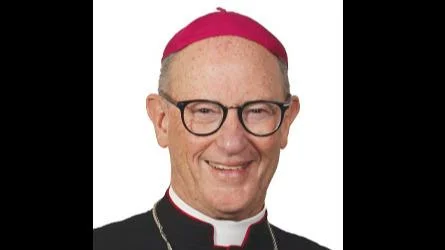
Rev. James D. Conley, D.D., S.T.L. | Diocese of Lincoln website
The Sunday obligation to attend Mass is a well-known aspect of Catholic practice, but its history and application have evolved over time. A recent article from the Diocese of Lincoln's publication clarifies the distinction between the obligation to keep holy the Sabbath and the specific requirement to attend Mass on Sundays.
The article explains that keeping holy the Sabbath is rooted in Divine Law, meant to ensure that people rest and renew their relationship with God each week. In contrast, attending Mass on Sunday is an ecclesiastical law established by the Church. The author notes, "The obligation to attend Mass on Sunday is an ecclesiastical law. It is a way our loving Mother the Church protects us from ourselves, making sure we take time at least once a week to go to gather as a community and go to our God and be fed by Him."
Historically, there was no universal rule requiring Catholics to attend Sunday Mass until 1917, when it was included in the first Code of Canon Law. Before this codification, participation in Sunday worship was largely understood as essential but not formally mandated for all Catholics. The 1983 Code of Canon Law continues this requirement: "On Sundays and other holy days of obligation, the faithful are obliged to participate in the Mass" (CIC c. 1247).
However, exceptions exist for those who cannot attend due to serious reasons such as illness or severe weather. The article cites canon law: "If participation in the eucharistic celebration becomes impossible because of the absence of a sacred minister or for another grave cause, it is strongly recommended that the faithful take part in a liturgy of the word if such a liturgy is celebrated... or that they devote themselves to prayer for a suitable time alone, as a family..." (CIC c. 1248 §2). These provisions mean that when attendance is genuinely impossible or imprudent, there is no obligation.
In these cases, while attending Mass may not be possible, individuals are encouraged to dedicate time for prayer and spiritual reflection on Sundays. Activities such as reading scripture readings for the day or participating remotely through streamed services are suggested ways for Catholics to observe the Sabbath when unable to be present at church.
This guidance reflects ongoing efforts within the Diocese of Lincoln and throughout the wider Catholic Church to clarify both obligations and exceptions related to Sunday worship.





 Alerts Sign-up
Alerts Sign-up